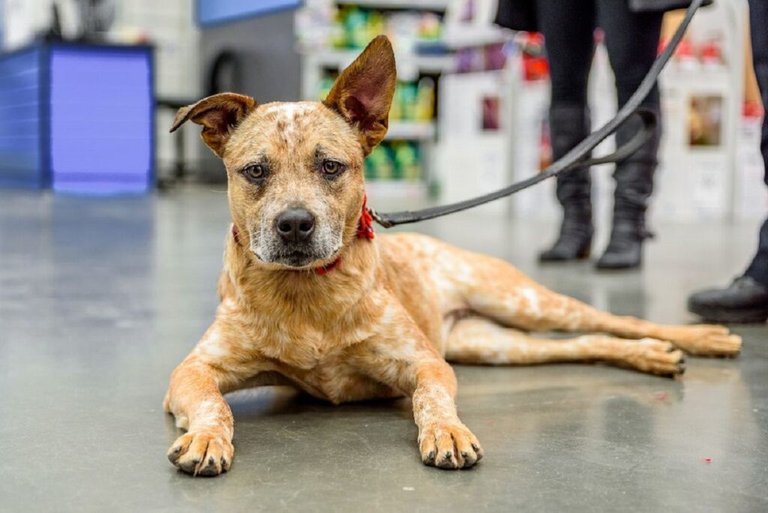The Reason behind Kidney Failure in Dogs
You will be surprised to know how many similarities you have in common with your pets, especially as a dog owner. Your lovely canine friend also has a kidney just like you do and they have several beneficial functions too.

credit
The kidneys of your canine friend (dog) principally act as a remover of waste products from the bloodstream, it regulates the levels of certain essential minerals like sodium, and potassium. Likewise, it produces urine and conserves water.
The kidney also helps with the control of blood pressure, increases the production of red blood cells, and metabolizes calcium.
When there is a case of chronic renal failure/chronic kidney failure, it describes the inability of the kidney to effectively filter the blood of waste products. An impairment in kidney function creates a serious effect on the life of your pet, so it is important to learn about the symptoms and how they can be avoided.
A case of kidney failure in a dog could be either acute or chronic, acute kidney failure happens very fast over some days, while chronic kidney failure takes time and happens slowly.
Acute kidney problem most frequently involves your dog ingesting a toxin, maybe the like of a bad chemical like an antifreeze, household cleaners, or even bad food. This problem happens due to a urinary obstruction in the body of your pet, when the flow of blood decreases, it leaves your dog's kidneys less oxygenated and more prone to infection. Kidney issues come from; snake bites, heat strokes, serious dehydration, and leptospirosis.

credit
Chronic kidney failure is more common amongst older dogs, because of how slow the progression is, it is usually difficult to pinpoint the exact cause, early symptoms of chronic kidney disease are overlooked easily or dismissed because they are mild.
Dental disease is a strong cause of chronic kidney failure especially amongst older dogs, there is often a buildup of bacteria in the teeth of your dog, then it enters into the digestive system while eating and drinking. Even if the kidneys of your dog are designed to filter waste basically, bacteria could lessen kidney function over time.
You should begin to suspect kidney disease in your dog when they show these signs;
Reduced appetite.
Consuming more or less water.
Vomiting or diarrhea.
Blood in urine.
Signs of dental diseases like smelly breath, pale gum, and mouth ulcers.
Unexplained weight loss.
Lack of interest in interacting or playing.
Decreased appetite.
The early signs of kidney disease are increased urination and of course, increased thirst, other associated symptoms would usually not become apparent until around two-thirds of the kidney tissue is destroyed, so in the case of chronic kidney disease, the damage may have started months or even years before the owner begins to notice it. This is the main reason why the common signs of kidney disease in dogs appear like they came out of the blue when in fact, the kidney has been struggling for a very long time.
Kidney disease in dogs is measured in stages, most times, veterinarians make use of the IRIS scale which has four stages, when your dog is assigned to a particular stage, the exact treatment will be assigned.
Dialysis is one of the ways to treat kidney disease in dogs, dialysis is a medical procedure that takes out waste products and extra fluid from the blood, it is more common in humans than it is in dogs. On rare occasions, a surgical kidney transplant is also a possibility in dogs.
Proper nutrition is also greatly required, there are several diets specially designed for pets who have kidney issues, you could check out for them and feed your pet. If your pet is already in the last stage of kidney disease, it may be difficult to get them to eat, so there are medications that function as appetite stimulators that may be recommended by your veterinary doctor.
Kidney disease doesn't have to be a problem for your pet, you could take preventive measures by ensuring they do not have access to household chemicals and cleaners, remember they are inquisitive by nature, so make sure those chemicals are kept in places they do not have access to.
Keeping your dog's teeth clean is also a good way to prevent kidney disease in them.
References
https://www.webmd.com/pets/dogs/kidney-problems-in-dogs
https://vcahospitals.com/know-your-pet/kidney-failure-chronic-in-dogs
https://www.akc.org/expert-advice/health/dog-kidney-disease/
Sending Love and Ecency Vote!

Thanks for your contribution to the STEMsocial community. Feel free to join us on discord to get to know the rest of us!
Please consider delegating to the @stemsocial account (85% of the curation rewards are returned).
Thanks for including @stemsocial as a beneficiary, which gives you stronger support.
Congratulations @futurekr! You have completed the following achievement on the Hive blockchain And have been rewarded with New badge(s)
Your next target is to reach 90000 upvotes.
You can view your badges on your board and compare yourself to others in the Ranking
If you no longer want to receive notifications, reply to this comment with the word
STOPCheck out our last posts: